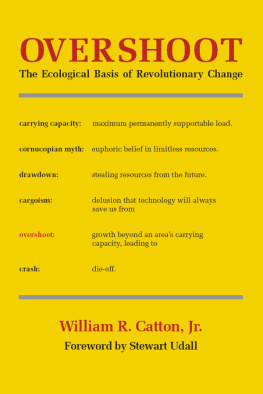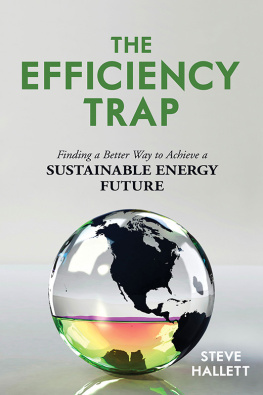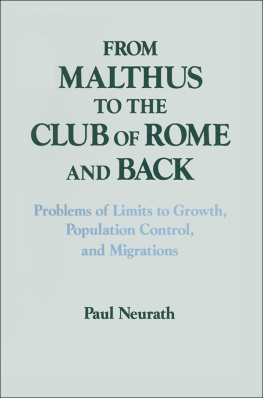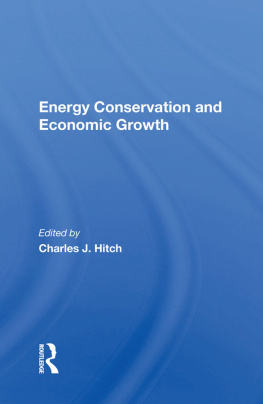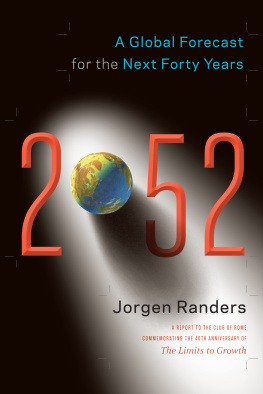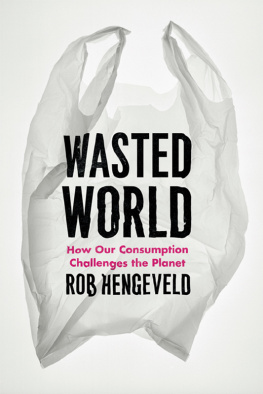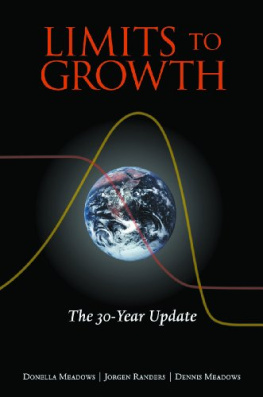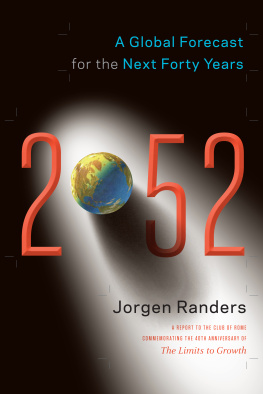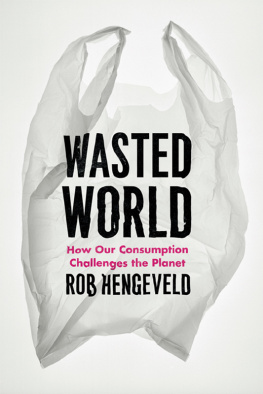1 | Our Need for a New Perspective |
Competition across Time
On the banks of the Volga in 1921 a refugee community was visited by an American newspaper correspondent who had come to write about the Russian famine. Almost half the people in this community were already dead of starvation. The death rate was rising. Those still surviving had no real prospect of prolonged longevity. In an adjacent field, a lone soldier was guarding a huge mound of sacks full of grain. The American newsman asked the white-bearded leader of the community why his people did not overpower this one guard, take over the grain, and relieve their hunger. The dignified old Russian explained that the sacks contained seed to be planted for the next growing season. We do not steal from the future, he said.
Today mankind is locked into stealing ravenously from the future. That is what this book is about. It is not just a book about famine or hunger. Famine in the modern world must be read as one of several symptoms reflecting a deeper malady in the human conditionnamely, diachronic competition, a relationship whereby contemporary well-being is achieved at the expense of our descendants. By our sheer numbers, by the state of our technological development, and by being oblivious to differences between a method that achieved lasting increments of human carrying capacity and one that achieves only temporary supplements, we have made satisfaction of today's human aspirations dependent upon massive deprivation for posterity.
People of one generation have become indirect and unwitting antagonists of subsequent generations. Yet diagnoses of our plighteven ecological analyseshave not made clear one essential point. A major aim of this book is to show that commonly proposed solutions for problems confronting mankind are actually going to aggravate those problems. Proposed remedies for various parts of our predicament need to be evaluated by asking whether they will intensify the adversary relationship between people living today and people of the next generation, and the next
The overlooked differences between methods that permanently enlarged human carrying capacity and more recent methods that have only enabled us temporarily to evade the world's limits can be seen if we contrast the way people used to seek the good life versus today's substitute expedient. In the mid-nineteenth century, it was Go west, young man, and grow up with the countryi.e., go where there is new land to take over, and use such an increment of carrying capacity to prosper. At the start of America's third century, however, it was Try to speed up the economyi.e., try to draw down the finite reservoir of exhaustible resources a bit faster.
Because this book is meant to overcome our habit of mistaking techniques that evade limits for techniques that raise them, it is, in a sense, a book about how to read the news perceptively in revolutionary times. That cannot be done without certain unfamiliar but increasingly indispensable concepts. Carrying capacity is one of them. Until recently, only a few people outside such occupations as wildlife management or sheep and cattle ranching have even known this phrase. Its vital importance to all of us has not been as obvious as it is now becoming. The time has come for scholars and everyone else to take a piercing look at the relationship between the earth's changing capacity to support human inhabitants and the changing load imposed by our numbers and our requirements. The direction of recent change makes this relationship just about the most important topic there is for people to know about, and think about. We have come to the end of the time when it didn't seem to matter that almost no one saw the difference between ways of enlarging human carrying capacity and ways of exceeding it.
It has now become essential to recognize that all creatures, human or otherwise, impose a load upon their environment's ability to supply what they need and to absorb and transform what they excrete or discard. An environment's carrying capacity for a given kind of creature (living a given way of life) is the maximum persistently feasible loadjust short of the load that would damage that environment's ability to support life of that kind. Carrying capacity can be expressed quantitatively as the number of us, living in a given manner, which a given environment can support indefinitely.
When the load at a particular time happens to be appreciably less than the carrying capacity, there is room for expansion of numbers, for enhancement of living standards, or both. If the load increases until it exceeds carrying capacity, overuse of the environment reduces That is why it has become important to recognize the difference between increasing the number an environment can support indefinitely and surpassing that number by accepting environmental damage. Overuse of an environment sets up forces that will necessarily, in time, reduce the load to match the shrinkage of carrying capacity.
As these points begin to indicate, in order really to understand our future we need a clear-headed ecological interpretation of history, because the pressure of our numbers and technology upon manifestly limited resources has already put out of reach the previously acceptable solutions to many of our problems. There remains steadfast resistance to admitting this, but facts are not repealed by refusal to face them. On the other hand, even the alarmists who have been warning of grave perils besetting mankind have not fathomed our present predicament.
I speak of predicament, not crisis, because I refer to conditions that are not of recent origin and will not soon abate.
In brief, that predicament and its background can be outlined as follows: Human beings, in two million years of cultural evolution, have several times succeeded in taking over additional portions of the earth's total life-supporting capacity, at the expense of other creatures. Each time, human population has increased. But man has now learned to rely on a technology that augments human carrying capacity in a necessarily temporary wayas temporary as the extension of life by eating the seeds needed to grow next year's food. Human population, organized into industrial societies and blind to the temporariness of carrying capacity supplements based on exhaustible resource dependence, responded by increasing more exuberantly than ever, even though this meant overshooting the number our planet could permanently support. Something akin to bankruptcy was the inevitable sequel.
Old Ideas, New Situation
The sequel has begun to happen, but it is not generally recognized for what it is.
We and our immediate ancestors lived through an age of exuberant growth, overshooting permanent carrying capacity without knowing what we were doing. The past four centuries of magnificent progress were made possible by two non-repeatable achievements: (a) discovery of a second hemisphere, and (b) development of ways to exploit the planet's energy savings deposits, the fossil fuels. The resulting opportunities for economic and demographic exuberance convinced people that it was natural for the future to be better than the past. For a while that belief was a workable premise for our lives and institutions. But when the New World became more populated than the Old World had been, and when resource depletion became significant, the future had to be seen through different lenses.
Assumptions that were once viable but have become obsolete must be replaced with a new perspective, one that enables us to see more effectively and to understand more accurately. This book seeks to articulate that needed perspective. It is no easy task, for the new way of seeing must differ sharply from traditional assumptions. Being unfamiliar, the new perspective will initially be distasteful and seem implausible. We shall continue to wish that some of the experiences it enables us to understand more clearly were not happening. But if we have the wisdom implied by the name we gave our own species, we must face the fact that continued misunderstanding of unwelcome experiences cannot prevent them from happening and cannot insulate us from their consequences.

